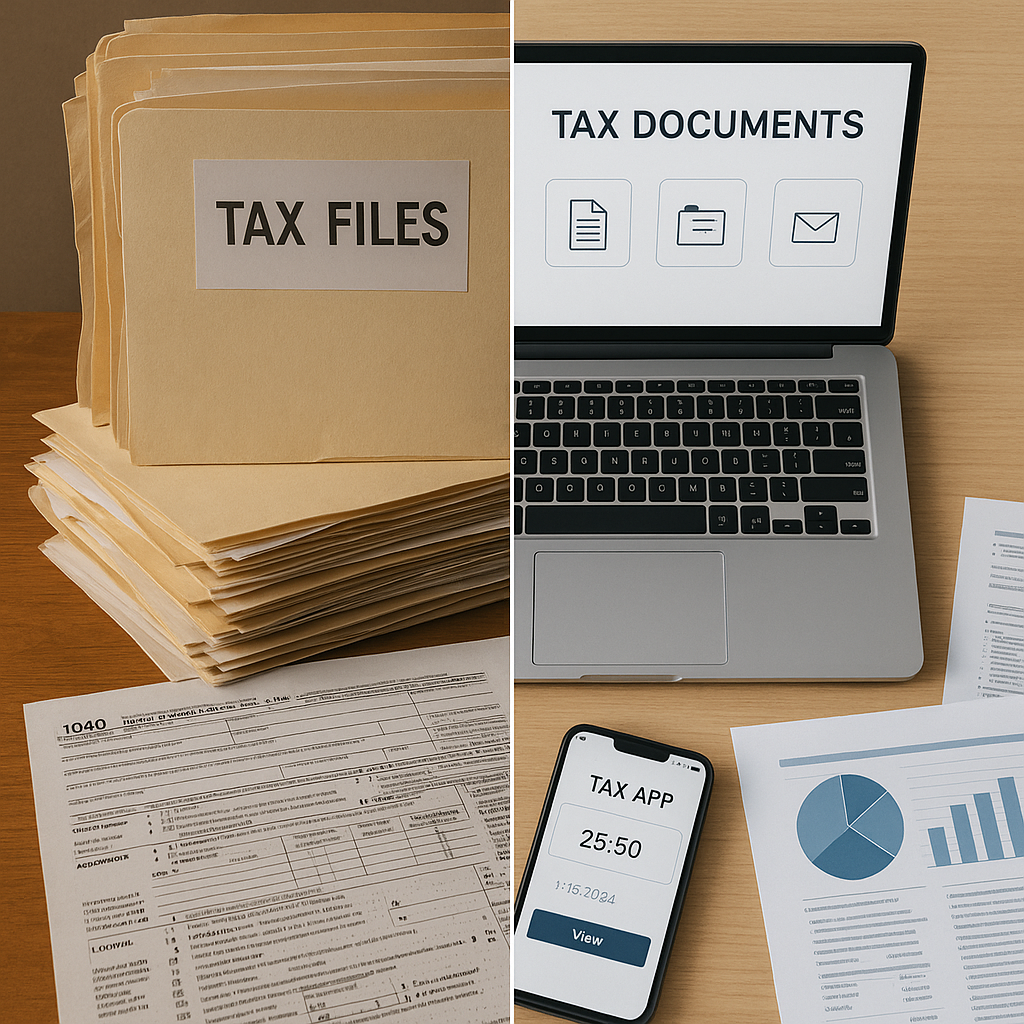
The ticking clock of tax deadlines strikes fear into the hearts of many London business owners. I’ve seen firsthand how even the most organized entrepreneurs can find themselves scrambling at the eleventh hour, desperately gathering receipts and calculating figures. But timely tax payment isn’t just about avoiding the taxman’s wrath – it’s a crucial aspect of running a financially healthy business in the UK’s competitive capital.
Whether you’re operating a trendy Shoreditch startup or a well-established family business in Kensington, understanding why prompt tax payments matter could be the difference between thriving and merely surviving in London’s dynamic business landscape. Find local accountants in London to help navigate this.
The Real Cost of Late Tax Payments
Financial Penalties That Add Up
Let’s be honest – penalties hurt. HMRC doesn’t take kindly to tardiness, and the costs can quickly snowball beyond the original tax amount. Here’s what you’re looking at if you miss those crucial deadlines:
- Immediate penalty of £100 for missing the filing deadline
- Additional £10 daily penalties after three months (up to £900)
- 5% of tax due penalty after six months
- Another 5% after twelve months
- Interest accruing on all outstanding amounts
These aren’t just minor inconveniences – they’re significant financial blows that affect your bottom line and cash flow. One London café owner I spoke with ended up paying nearly £1,200 in penalties after missing a filing deadline by just two months – that’s a lot of flat whites! Learn more about dealing with HMRC investigations.
Reputation Damage You Can’t Afford
In London’s tightly-knit business communities, word travels fast. Tax problems can leak into your professional reputation, affecting relationships with:
- Suppliers who may tighten credit terms
- Banks and lenders reviewing your financial reliability
- Potential business partners conducting due diligence (consider our business advice services)
- Clients seeking stable, dependable vendors

Understanding UK Tax Deadlines for Businesses
Keeping track of tax deadlines is essential for London businesses. Here’s a clear breakdown of what you need to know (check our Tax Calendar):
Corporation Tax
For limited companies, this is typically due nine months and one day after your accounting period ends. Many London businesses align their accounting period with the tax year (April 6 to April 5), but yours might differ. Explore corporate tax planning.
VAT Payments
If your business is VAT-registered (mandatory if your taxable turnover exceeds £85,000), you’ll need to submit VAT returns and payments usually quarterly. The specific deadlines depend on your VAT period. We offer VAT services.
PAYE and National Insurance
For businesses with employees, PAYE tax and National Insurance contributions must be paid monthly, typically by the 22nd of the month (or the 19th if paying by post). See our payroll management services.
Self-Assessment
If you’re a sole trader or partner in a business, January 31st is your crucial deadline for both filing your self-assessment tax return and paying any tax due. Read our guide on how to fill in a self-assessment tax return.
Smart Strategies for Timely Tax Payments
Embrace Digital Tax Management
The days of paperwork mountains are (thankfully) behind us. HMRC’s Making Tax Digital initiative has revolutionized how London businesses handle their taxes. Digital tax management, like cloud accounting, offers:
- Real-time visibility of tax obligations
- Automated calculations reducing human error
- Seamless integration with accounting software
- Convenient payment options
I recently switched to a cloud-based accounting system, and it’s transformed my approach to tax management. What used to take days now takes hours, freeing me to focus on growing my business instead of drowning in paperwork. Read about the impact of cloud-based accounting on small businesses.
Build a Tax Reserve Fund
One of the smartest moves you can make is establishing a dedicated tax reserve fund. This involves:
- Calculating your approximate tax liability based on projected income
- Setting aside a percentage of revenue regularly (consider personal tax planning)
- Keeping these funds in a separate account
- Adjusting contributions quarterly based on actual performance
This approach ensures you’re never caught short when tax bills arrive. A jewellery designer in Hatton Garden told me this strategy saved her business during the pandemic when cash flow became unpredictable.
Calendar Management That Works
Tax deadlines don’t exist in isolation – they’re part of your overall business calendar. Effective calendar management includes:
- Setting multiple reminders (30, 14, and 7 days before deadlines) using tools like our Tax Calendar
- Blocking preparation time in your schedule
- Aligning with your accountant’s availability
- Accounting for holidays and busy periods

FAQ: Tax Payment Essentials for London Businesses
What are the different ways I can make a tax payment in the UK? HMRC offers multiple payment options including online banking, Direct Debit, debit or credit card payments through their online service, CHAPS, BACS, and even payment at your bank or building society (though this service is becoming less common). Each method has different processing times, so be aware of this when choosing your payment method – some can take up to three working days to reach HMRC.
When are estimated tax payments due for UK businesses? For self-employed individuals and partnerships, payments on account are typically due on January 31st and July 31st each year. These payments are each 50% of your previous year’s tax bill. Limited companies have different requirements and typically pay Corporation Tax nine months and one day after the end of their accounting period. Check the Tax Calendar.
How do I calculate my estimated tax payments for a London business? For sole traders and partnerships, payments on account are generally calculated as 50% of your previous year’s tax bill for each installment. However, if you expect your income to vary significantly, you can apply to reduce these payments. For limited companies, Corporation Tax is calculated as a percentage of your taxable profits (currently 19% for most small businesses). Our accounts and tax services can help.
Can I pay my taxes in installments if I cannot pay the full amount? Yes, HMRC offers Time to Pay arrangements if you’re struggling to pay your tax bill. You’ll need to contact HMRC as soon as possible, explain your situation, and propose a payment schedule. They’re generally more accommodating if you approach them before the deadline rather than after you’ve already defaulted.
What happens if I file or pay my taxes late in the UK? Late filing and payment trigger automatic penalties. For Self Assessment, there’s an immediate £100 penalty for late filing, with additional penalties accruing over time. Late payment incurs interest charges and potential percentage-based penalties. For VAT, late filing and payment can result in a ‘surcharge’ based on your VAT amount, while PAYE late payments accrue interest and potential penalties. See our section on dealing with HMRC investigations.
How can I check my tax payment history and balance with HMRC? You can view your tax account details through the HMRC online services portal. For Self Assessment, log into your personal tax account; for business taxes, use your Business Tax Account. These portals show payment history, outstanding balances, and upcoming deadlines. If you use an agent or accountant, they can also access this information on your behalf. Read about personal tax account features.
Can I use a credit or debit card to pay my taxes to HMRC? Are there fees? Yes, HMRC accepts both credit and debit card payments online via their payment portal. Debit card payments are free, but credit card payments incur a non-refundable fee. The exact fee depends on the card type and payment amount – typically around 1.5% of the transaction value. This fee goes to the payment processor, not to HMRC.
How do I avoid estimated tax penalties in the UK? To avoid penalties, ensure you make accurate payments on time. Keep good records throughout the year (consider bookkeeping services), set reminders for key deadlines, and maintain a tax reserve fund. If your income decreases substantially, apply to reduce your payments on account promptly. Working with qualified accountants familiar with London business taxation can also help you navigate complex requirements.
The Competitive Advantage of Tax Compliance
Cash Flow Optimization
Proper tax planning creates predictability, transforming tax from a dreaded surprise into a manageable business expense. When you’re proactive about tax payments:
- You can forecast cash flow with greater accuracy
- Seasonal fluctuations become easier to navigate
- Investment decisions are based on reliable financial data
- Growth planning incorporates realistic tax obligations (see our business plans service)
A Thames-side restaurant owner explained how this approach helped them expand: “Understanding our tax position gave us the confidence to open a second location. We knew exactly what we could afford and when.”
Access to Better Financing
Banks and lenders love tax-compliant businesses. Clean tax records demonstrate:
- Financial discipline and responsibility
- Accurate record-keeping
- Business stability and longevity
- Lower risk for lenders
This translates directly into better financing options – higher limits, lower interest rates, and more flexible terms. In London’s competitive property market, this can be the difference between securing that perfect location or losing it to a competitor.
Technology Solutions for Tax Management
Tax Software Tailored to London Businesses
The market offers specialized tools designed with UK tax requirements in mind:
- QuickBooks, Xero, and FreeAgent integrate directly with HMRC (explore our cloud accounting options)
- Receipt Bank and AutoEntry capture and categorize expenses automatically
- TaxCalc and GoSimpleTax simplify self-assessment filing
- FreeAgent offers specific features for contractors and freelancers
I’ve found that investing in good tax software pays for itself many times over – not just in time saved, but in identifying deductions and allowances you might otherwise miss. Check our useful office software page.
The Mobile Revolution in Tax Management
Modern tax management happens on the go. Mobile apps now allow London business owners to:
- Photograph and log receipts instantly
- Check tax deadlines while commuting
- Make payments between meetings
- Monitor tax account status from anywhere
This flexibility is particularly valuable in London, where business owners often juggle multiple responsibilities across this vast.
Building a Reliable Tax Support System
Finding the Right Tax Professional
A good accountant is worth their weight in gold, especially one familiar with your specific industry in London. Look for:
- Qualifications from recognized bodies (ACCA, ICAEW, CIOT)
- Experience with businesses of your size and sector (see Our Team)
- Knowledge of local London business environment (accountants near me)
- Proactive communication style
- Tech-savvy approach to tax management (consultancy and system advice)
The relationship with your tax advisor should be collaborative. They’re not just there to crunch numbers but to help you understand the strategic implications of tax decisions. Consider our professional tax compliance experts.
Creating Internal Tax Processes
Even with external support, robust internal processes are essential:
- Designate a tax responsibility person within your team
- Establish regular financial review meetings
- Develop a standardized system for expense recording
- Create a tax deadline calendar visible to all stakeholders (Tax Calendar)
- Implement approval workflows for large expenditures
These processes create accountability and ensure tax doesn’t fall through the cracks during busy periods.
Tax Payment Options Comparison
| Payment Method | Processing Time | Cost | Best For |
| Online Banking | Same/next day | Free | Most businesses |
| Direct Debit | 3 working days | Free | Regular payments |
| Debit Card | Same day | Free | Last-minute payments |
| Credit Card | Same day | ~1.5% fee | When cash flow is tight |
| CHAPS | Same day | Bank fees apply | Large urgent payments |
| BACS | 3 working days | Free | Planned payments |
Source: Adapted from HMRC guidance
The Future of Business Taxation in London
Making Tax Digital: What’s Next
HMRC’s Making Tax Digital initiative continues to evolve, with more businesses being brought into its scope. Future developments likely include:
- More frequent reporting requirements
- Enhanced integration between business systems and HMRC
- Increased automation of tax calculations
- Potential real-time tax assessments
Staying ahead of these changes requires vigilance and adaptability – qualities that successful London businesses already possess in abundance.
Post-Brexit Tax Landscape
The UK’s exit from the EU continues to reshape the tax environment, particularly for businesses trading internationally. Key considerations include:
- VAT implications for EU trade
- Customs duties and administrative requirements
- Changes to accounting for international services
- Potential new tax incentives to boost UK business
Conclusion: The Business Case for Tax Timeliness
Timely tax payment isn’t just about compliance – it’s a strategic business decision that affects everything from daily operations to long-term growth potential. In London’s competitive business environment, the advantages of staying on top of your tax obligations extend far beyond avoiding penalties.
By embracing digital tools, establishing robust processes, and working with qualified professionals (like Ask Accountants UK Ltd), you can transform tax management from a dreaded chore into a competitive advantage. The peace of mind that comes from knowing your tax affairs are in order allows you to focus on what you do best – running and growing your London business.
Want to discuss your specific tax situation? Consider reaching out to a qualified tax professional familiar with London’s business landscape. Contact Us today. Your future self (and your bank account) will thank you.







